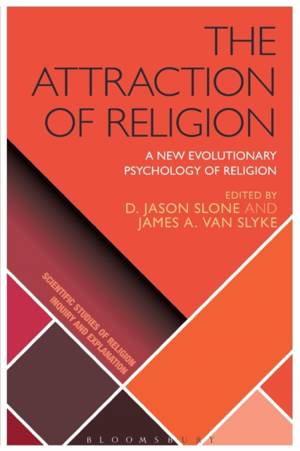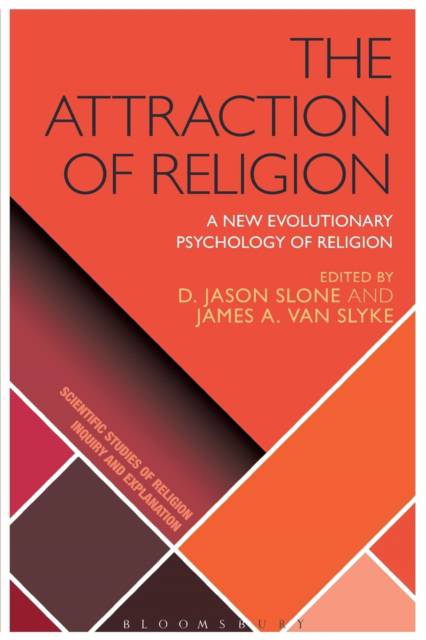
Je cadeautjes zeker op tijd in huis hebben voor de feestdagen? Kom langs in onze winkels en vind het perfecte geschenk!
- Afhalen na 1 uur in een winkel met voorraad
- Gratis thuislevering in België vanaf € 30
- Ruim aanbod met 7 miljoen producten
Je cadeautjes zeker op tijd in huis hebben voor de feestdagen? Kom langs in onze winkels en vind het perfecte geschenk!
- Afhalen na 1 uur in een winkel met voorraad
- Gratis thuislevering in België vanaf € 30
- Ruim aanbod met 7 miljoen producten
Zoeken
The Attraction of Religion
A New Evolutionary Psychology of Religion
€ 81,45
+ 162 punten
Omschrijving
Religion is an evolutionary puzzle. It involves beliefs in counterfactual worlds and engagement in costly rituals. Yet religion is widespread across all human cultures and eras. This begs the question, why are so many people attracted to religion?
In The Attraction of Religion, essays by leading scholars in evolutionary psychology, anthropology, and religious studies demonstrate how religion may be related to evolutionary adaptations because religious commitments involve fitness-enhancing behaviours that promote reproduction, kinship, and social solidarity. Could it be that religion is wide-spread, at least in the modern world, because it helps to facilitate cooperative breeding? International contributors explore the philosophical and theoretical arguments for and against the use of costly signalling, sexual selection, and related theories to explain religion, and empirical findings that support or disconfirm such claims. The first book-length treatment that focuses specifically on costly signalling, sexual selection, and related evolutionary theories to explain religion, The Attraction of Religion will be an important contribution to the field and will be of interest to researchers in the fields of evolutionary psychology, religion and science, the psychology of religion, and anthropology of religion.
In The Attraction of Religion, essays by leading scholars in evolutionary psychology, anthropology, and religious studies demonstrate how religion may be related to evolutionary adaptations because religious commitments involve fitness-enhancing behaviours that promote reproduction, kinship, and social solidarity. Could it be that religion is wide-spread, at least in the modern world, because it helps to facilitate cooperative breeding? International contributors explore the philosophical and theoretical arguments for and against the use of costly signalling, sexual selection, and related theories to explain religion, and empirical findings that support or disconfirm such claims. The first book-length treatment that focuses specifically on costly signalling, sexual selection, and related evolutionary theories to explain religion, The Attraction of Religion will be an important contribution to the field and will be of interest to researchers in the fields of evolutionary psychology, religion and science, the psychology of religion, and anthropology of religion.
Specificaties
Betrokkenen
- Uitgeverij:
Inhoud
- Aantal bladzijden:
- 272
- Taal:
- Engels
- Reeks:
Eigenschappen
- Productcode (EAN):
- 9781350005280
- Verschijningsdatum:
- 25/08/2016
- Uitvoering:
- Paperback
- Formaat:
- Trade paperback (VS)
- Afmetingen:
- 156 mm x 234 mm
- Gewicht:
- 381 g

Alleen bij Standaard Boekhandel
+ 162 punten op je klantenkaart van Standaard Boekhandel
Beoordelingen
We publiceren alleen reviews die voldoen aan de voorwaarden voor reviews. Bekijk onze voorwaarden voor reviews.








